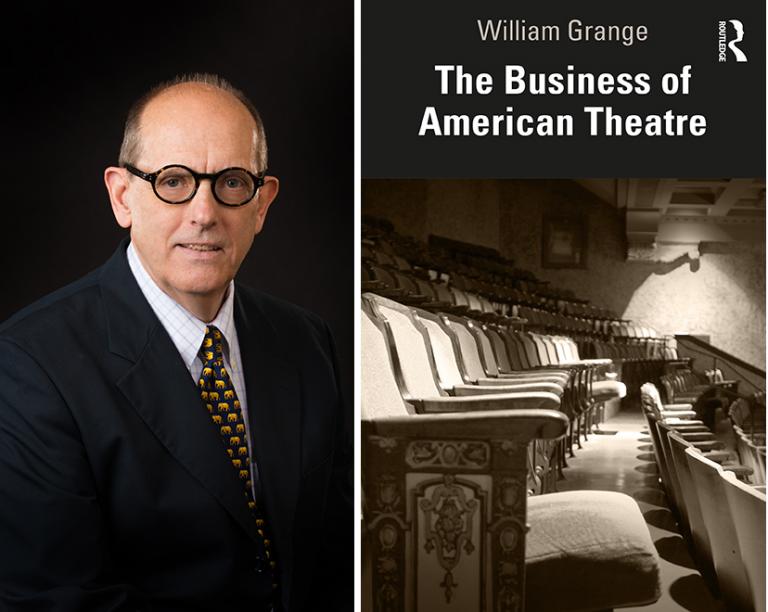
Grange’s 12th book ‘The Business of American Theatre’ will publish in July
calendar icon27 May 2020 user iconBy Kathe C. Andersen
Lincoln, Neb.--Johnny Carson School of Theatre and Film Professor of Theatre William Grange’s 12th book, “The Business of American Theatre,” will be published in July by British publisher Routledge, an imprint of the Taylor and Francis Publishing Group in the United Kingdom.
It covers a wide range of subjects, including traditions of investment, marketing, labor union contracts, advertising, leasing arrangements, ticket scalping, zoning ordinances, royalties, and numerous other financial transactions have influenced the art of American theatre for the past three centuries.
Yet the book is not a dry reiteration of hits and flops, bankruptcies and bamboozles, Grange says. It is instead a highly readable resource for anyone interested in how money, and how much money, is critical to the art and artists of American theatre.
“I became interested in the economic and business features of the American theatre when I was an actor in New York back in the 1970s,” Grange said. “At that time, almost everything was going bankrupt, including the city of New York itself. The theatre was in terrible shape; buildings were falling apart, the murder rate was horrific, while drug dealing and prostitution was pervasive in the theatre district around Times Square, where I often had to go for auditions and dance lessons. Then the theatre and Times Square New York enjoyed a wholesale refurbishment. As the 20th century progressed, more and more shows made money; theatres were rebuilt, and by 2015 Broadway had become literally a billion-dollar enterprise.”
The editors of Routledge approached Grange with the question: What happened?
“Many things happened, I found out,” Grange said. “First among them was the eradication of police corruption and the active prosecution of drug dealers and pimps in the Times Square area. Then came loan guarantees to Disney and other corporate producers to get into show business. Then the Shubert Organization began to invest not only in shows but also in what became the new municipal zoning sub-district, which encouraged investment in theatre buildings and theatre-related businesses.”
Then, there was another British invasion.
“This time it was shows which Cameron Mackintosh produced,” Grange said. “Families and tourists started attending Broadway shows again. More important were investors in new shows, which included non-profit, non-commercial theatres. It’s been an amazing turnaround, and that’s what most of the book is about—with special attention to the financial ramifications of theatre architecture, market panics, long runs, royalties, enhancement money, air rights, copyrights, and flops. I learned that flops are actually very important for the health of American theatre.”
Grange said the book is aimed at an audience broader than just theatre critics, scholars and students.
“It is a kind of ‘go-to’ resource, which informs readers interested in business, finance, marketing, theatre investment and theatre history,” he said.
Grange’s other books have mostly focused on the German-language theatre. This is his first departure into American theatre, which he finds fascinating.
“I’ve always taken American theatre for granted, since it’s all around us—but except for musicals, very little of it has interested me,” he said. “The financing on Broadway, however, along with recent collaborations among non-profit regional theatres, the involvement of non-profit foundations, and the sheer volume of ticket sales (running into billions of dollars) are block-busting developments.”
The 300-page volume begins in 1680 and runs through 2020. The book is available through the publisher, Amazon.com and other retailers.
Grange is the recipient of three Fulbright research awards, along with several research fellowships in Europe. Visit his author page on Amazon.com for a list of his other books in print.